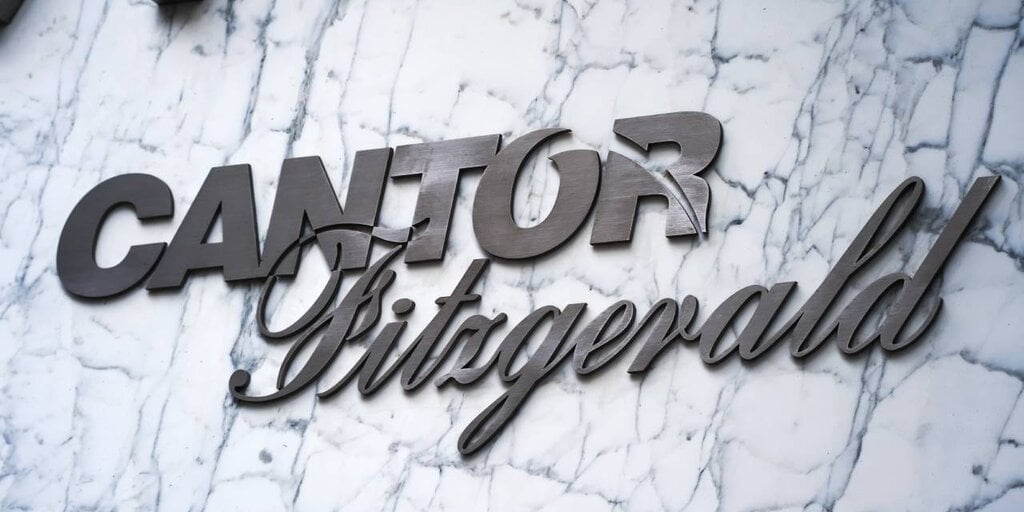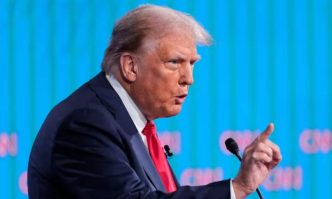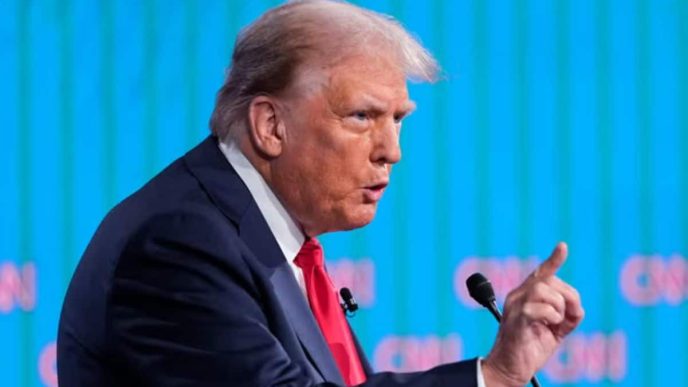U.S. financial services and bond trading firm Cantor Fitzgerald is reportedly discussing a multibillion-dollar Bitcoin-backed lending program with the help of Tether.
The proposed program would allow clients to borrow dollars using Bitcoin as collateral. Initially, the operation would begin with a $2 billion allotment, though it has the potential to expand as crypto sees more adoption, according to a Bloomberg report on Saturday.
It’s yet another step towards a symbiotic relationship between Wall Street and the crypto industry, which has deepened this year, particularly as an expected transition in crypto policy comes to the fore as Trump prepares to settle into the White House.
The Bitcoin lending program, still in its early stages, would likely include multiple financial contributors alongside Tether, per the report. Cantor is already recruiting staff for the initiative.
The move comes as Cantor’s chief, Howard Lutnick, was nominated as Commerce Secretary under President-elect Donald Trump on Wednesday and is reportedly preparing to divest his interests in the firm.
In a prepared statement following the nomination, Lutnick said he intends to do so “to comply with U.S. government ethics rules.”
Lutnick’s departure from key roles applies to his positions at Cantor, BGC, and Newmark.
As Lutnick prepares to depart Cantor pending Senate confirmation, he plans to hand over the firm’s Tether relationship to colleagues.
His son, Brandon, is cited as a possible candidate, per the Bloomberg report. Brandon previously interned at Tether’s Swiss operations and is now at Cantor, is said to have counted gold bars backing Tether’s $660 million gold-backed token (Tether Gold) during his internship in Lugano.
“The ratings assigned to Cantor, BGC, and Newmark incorporate key person risk associated with Lutnick given his majority voting control, market relationships, close involvement in many aspects of the businesses, and outsized influence on the firms’ respective strategic directions,” a commentary from Fitch Ratings claims.
More at stake
Cantor already manages most of Tether’s $132 billion assets through its custody business, earning tens of millions in annual fees. Notably, Cantor also acquired a 5% stake in Tether valued at $600 million, according to sources cited by a separate report from the WSJ.
The WSJ report cites a statement issued before Lutnick’s selection as commerce secretary, where a spokesperson maintained that Tether’s relationship with Cantor was “entirely professional, based on managing reserves,” dismissing suggestions that Lutnick’s political connections could influence regulatory actions.
The same report quotes Lutnick’s statements at the Bitcoin Conference at Nashville in July when he described his first meeting with Tether CFO Giancarlo Devasini:
“I basically told him the movie line. I said, ‘Show me the money’ […] And we found every penny, and they had every penny.”
These statements point to what Tether had been struggling with over the years: proving it indeed does have the reserves backing its stablecoin issuance following years of skepticism from industry insiders and outsiders alike.
A U.N. report released in January identified Tether’s USDT as a “preferred choice” for money launderers, while the U.S. Treasury Department has asked Congress for new powers to block stablecoin transactions linked to illicit activities.
Tether has repeatedly refuted those claims, saying it instead provides support to law enforcement officials and policymakers to mitigate the use of its stablecoin for illicit activity.
Stablecoin regulation in the U.S.
Shifts in crypto legislation could impact stablecoin issuers based in the U.S., Decrypt previously reported. In April, bipartisan senators Kirsten Gillibrand (D., N.Y.) and Cynthia Lummis (R., Wyo.) introduced a framework for stablecoin regulation that would help protect consumers and promote “responsible innovation.”
The bill seeks to ban offshore operations for stablecoins using the U.S. dollar as its peg, which could take a significant swing at Tether’s issuance.
Tether Limited, the company that oversees issuance for USDT, is incorporated in Hong Kong and is wholly owned by Tether Holdings Ltd., which in turn is registered in the British Virgin Islands.
Tether’s offshore banking relationships came under increased scrutiny after a $18.5 million settlement with the New York Attorney General’s office in 2021 over misrepresenting its reserves. The landmark case resulted in major U.S. banks cutting ties with Tether’s partners.
The company’s deliberately offshore corporate structure, operating through multiple jurisdictions, has made it a target for U.S. legislators seeking to bring dollar-pegged stablecoins under domestic regulatory frameworks.
Edited by Sebastian Sinclair
Daily Debrief Newsletter
Start every day with the top news stories right now, plus original features, a podcast, videos and more.
Source link
Vince Dioquino
https://decrypt.co/293359/cantor-fitzgerald-plans-2-billion-bitcoin-lending-program-via-tether-report
2024-11-25 02:55:32














